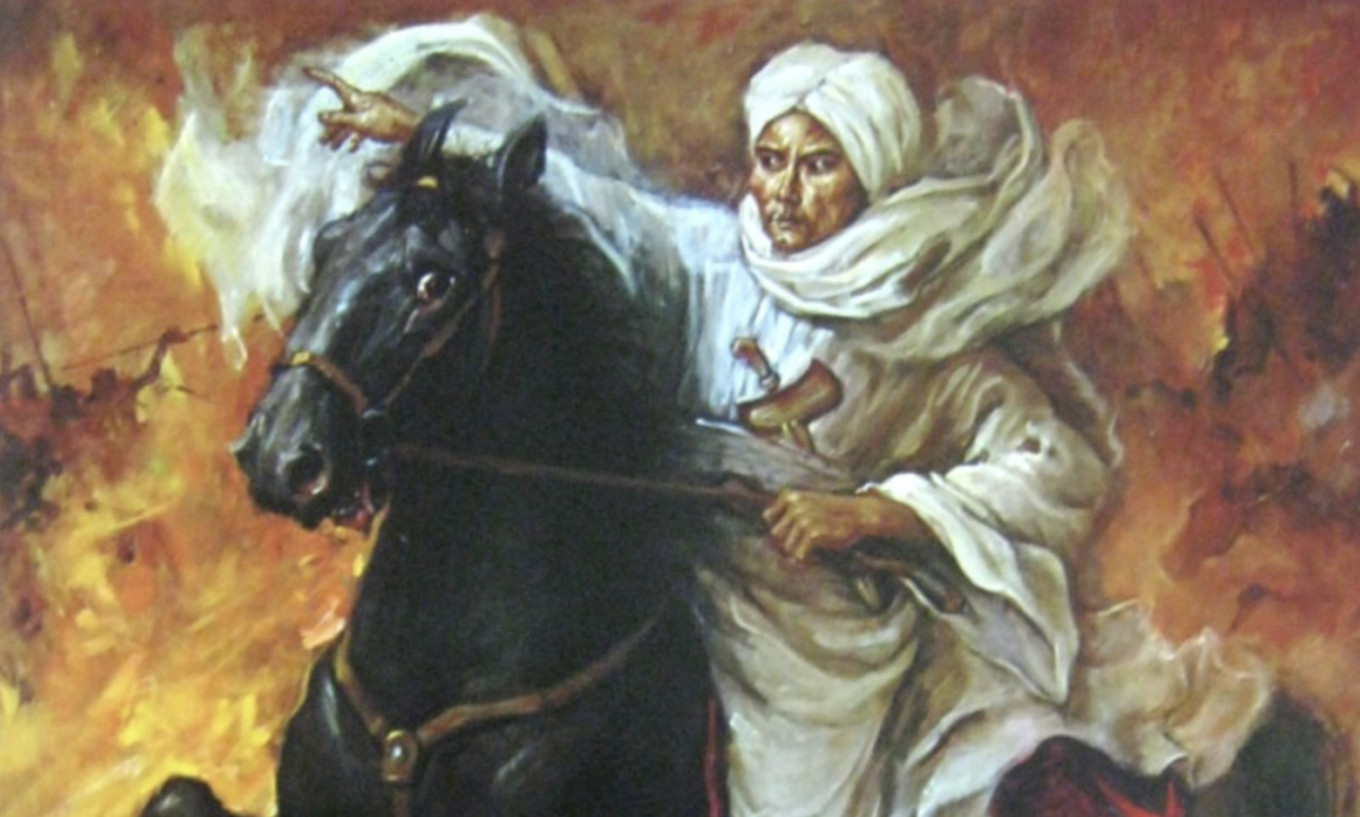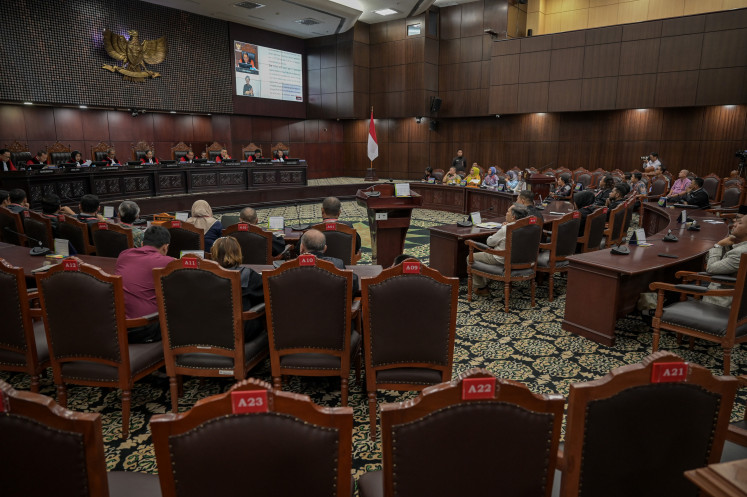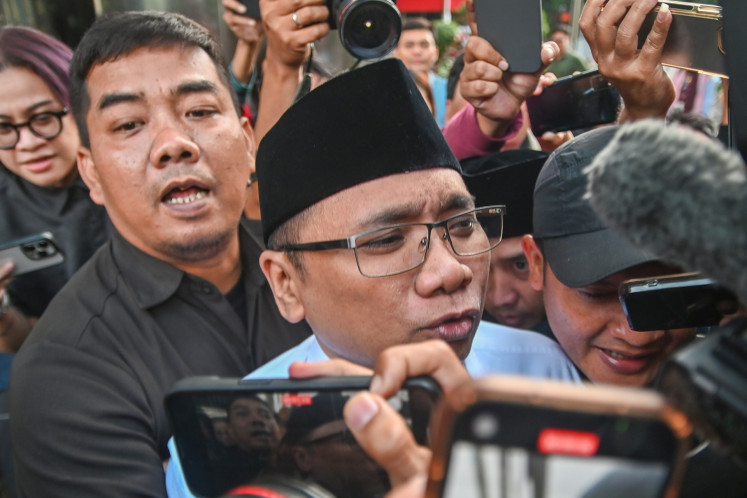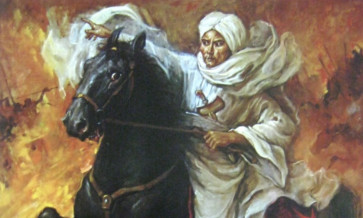Popular Reads
Top Results
Can't find what you're looking for?
View all search resultsPopular Reads
Top Results
Can't find what you're looking for?
View all search resultsIconography of Prince Diponegoro again figures prominently in election
The five-year war that he waged against the Dutch between 1825 and 1830 almost bankrupted the occupying government and the consequences from the war were deemed responsible for the brutal Cultivation System that was imposed by the colonial government.
Change text size
Gift Premium Articles
to Anyone

Javanese Muslim general and national hero Prince Diponegoro has been dead for almost two centuries now, but the legendary stories about his heroism, especially during the Java War, have continued to resonate with many Indonesians.
For obvious reasons.
The five-year war that he waged against the Dutch between 1825 and 1830 almost bankrupted the occupying government and the consequences from the war were deemed responsible for the brutal Cultivation System that was imposed by the colonial government.
Historians have also argued that it was Diponegoro's Java War that served as the impetus for Indonesia's nationalism and the general struggle against Dutch colonialism culminating in the country's Declaration of Independence in 1945.
For the ordinary Javanese he was seen as a messiah figure, hellbent on liberating the common man from the yoke of colonialism and his use of Islam as a rallying call made him the ideal Muslim figure that politicians from the past and present have tried to emulate.
In the past two decades, the prince's name has been mentioned a lot, especially during election seasons.

Defense Minister Prabowo Subianto has made no secret about his admiration for Diponegoro and has made efforts to paint himself as his successor.


















